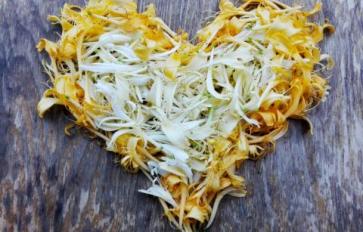
Puppies. Adorable, entertaining, but a real responsibility to take on. If one of these exuberant little bundles of fur comes into our life, then it’s our job to give them the best start we can to, hopefully, a long and healthy life. (Though really, dogs don’t live nearly long enough!)
Here are some ideas to help you get started.
1. Meet Your Local Vet
Bring your little charge to meet a respected vet in the area. If you’re lucky like we are in Durango, you may have a vet who takes a holistic approach to canine care. Either way, it’s never a bad idea to get your little gal checked out for any potential health issues. Especially if, like me, you tend to choose your four-legged companions from shelters or rescue organizations. Have a list of questions ready for the vet. For instance, if your puppy is a specific breed, you can ask about health problems that breed may be prone to, so that you can take a proactive approach.
Try to make this first visit (and subsequent ones) as pleasant as possible. You won’t regret it in the long run, especially if your little fur ball grows into an enormous pooch. The veterinary office can be quite a stressful place for your pup…the noises, smells, and bustle. I’m not above using healthy, low-calorie treats as both bribery and rewards for getting into the dog crate for transport, entering the office, putting up with whatever is done while there, getting back into the crate…You get the idea. Some folks choose to forego the treats and use praise instead. Whatever works for you.
2. Don’t Feed Junky Food
Puppies are little metabolic powerhouses. They need extra calories, and extra protein in particular, to support their mind-bogglingly rapid growth. The exact amount will depend on the breed, but generally, pups need about twice the energy per pound of their body weight that an adult dog needs.
There are many opinions out there on what constitutes a healthy diet and I’m not going to get into that here. For those who want to make their pup’s own food, get educated on the nutritional requirements for pups…as mentioned, it’s different than for adult dogs. A couple of starting places for this could be books like All You Ever Wanted to Know about Herbs for Pets by ML Wulff-Tilford & GL Tilford or Dr. Pitcairn’s Complete Guide to Natural Health for Dogs & Cats by RH & SH Pitcairn. Seek out further guidance, perhaps a holistic veterinarian. It is rewarding to make your own puppy chow, but it’s important that you provide appropriate nutrient coverage.
If buying commercial food, look on the packaging for an Association of American Feed Control Officials (AAFCO) statement that the food meets the nutritional requirements for puppies. Read the ingredient label. Is the food produced with whole foods? Does it contain fillers like corn, soy, or animal by-products?
3. Be Patient When Training
Avoid yelling. Positive reinforcement is key. When housetraining, praise the heck out of your pup when she does her business outside. This even worked for the senior chihuahua I adopted who didn’t distinguish between the bathroom rug, the kitchen floor, or the yard. She wasn’t incontinent, she just for some reason never learned. She eventually learned.
Avoid punishing your pup if she has an accident inside…they are new at this! Expect that there will be quite a bit of puppy poop and urine deposited indoors during the process. This would be a good time to temporarily roll up any expensive rugs, or to keep your little one out of any rooms that are carpeted.
To reduce the number of accidents, take your pup outside frequently and be ready to give immediate positive reinforcement, whether it’s praise, a healthy treat, or some scratches on the butt.
4. Use Botanical Support
Puppies are sensitive to herbs, so you don’t need much. The books I already referred to are great resources for using herbs for dogs. For puppies in particular, rather than using those concentrated extracts (liquid extracts, tinctures and such), consider using the actual plant (for instance just a small bit of lemon balm leaf torn up and added to your puppy’s food), or a small amount of tea from the plant.
A note on using herbs: most are diuretic to some extent, so there may be more accidents if your pup has not yet been housebroken.
- Stress - Chamomile can be a good ally for an upset pup.
- Skin issues - For itchy or otherwise irritated skin, chamomile or oats as a rinse may be helpful. Oats can also be used as an oatmeal poultice if you can keep your pup from eating it. If the issue isn’t going away or is getting worse, see your vet. Also, make sure you’re feeding good food. Many ingredients in poorly produced commercial foods may cause reactivity.
- Digestive stuff - If your pup needs some gentle tummy herbs, look to chamomile, lemon balm, or even catnip. Catnip may also lend some help if your pup gets carsick.
For anything beyond minor issues or any issue that’s not resolving, see your vet.
A Final Word....
Provide socialization, boundaries, good nutrition, and lots and lots of love. Remember that the more effort you put into your puppy at the beginning, the more fulfilling your relationship will be!








